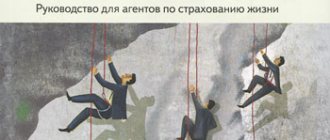A document such as a job description performs several functions in an enterprise. The main one is a description of the employee’s work tasks, his rights and responsibilities. This document is also drawn up for the deputy production director. Let's look at how to do this correctly.
There is no universal model. Each organization will have its own version of the document, because an employee in the position of Deputy Director for Production in each specific case will perform duties depending on the specifics of production and the enterprise.
FILES
Sample job description for Deputy Director of Production
General provisions
- This document describes and approves the rights, responsibilities and job functions of the Deputy Director for Production.
- The deputy production director can only be appointed and dismissed by ______________________ in accordance with current labor legislation.
- The Deputy Director for Production is a direct subordinate to the __________________ company.
- This position is filled by a person with a higher technical education and work experience in his specialty as a manager in the required industry of the company for at least 5 years.
- An employee hired for this position is included in the management team, is at the head of production work and has the following subordinates: ____________________________________________________________.
- An employee in this position is responsible for:
- normal operation of its structural unit according to the company’s plans;
- labor and performance discipline of the personnel of your department;
- safety of important information and documents that contain the company’s trade secrets, other confidential data, including personal information about the company’s employees;
- maintaining order in your department, creating safe working conditions, following fire safety rules at work.
- During his work in the company, the deputy production director must rely on the following documents:
- legislative acts of the Russian Federation, LNA and organizational and administrative documents of the company in the field of production;
- Internal labor regulations;
- current occupational health and safety requirements, sanitary and fire safety standards;
- administrative documentation of the company management;
- this document.
- The Deputy Director of Production should know:
- legislative and regulatory documentation in the field of production organization;
- basic norms of environmental law;
- hierarchical structure of the company, specialization, goals and strategies for its development;
- the company's needs for production resources, both current and future, as well as methods for planning them;
- the functions of each of the company’s production divisions to ensure the required result: the required quality, quantity, product range;
- methods for studying the state of the production potential of an enterprise, the resources needed to maintain it;
- enterprise capacities, both main and reserve;
- prospects for the development of the production sector of your enterprise or company;
- rules for registration and approval of production work plans of an economic entity;
- current principles of production organization;
- algorithm for concluding contracts with suppliers of necessary resources;
- leading experience in production management, both Russian and foreign;
- hierarchy and composition of technological and production documentation of its business entity;
- rules for working with computer and communication equipment;
- rules of business etiquette, business correspondence.
- During periods of absence of this employee from the workplace due to vacation or sick leave, his labor functions pass to ________________________, as well as rights and responsibilities.
Job responsibilities
Labor tasks of an employee for the position of Deputy Director for Production:
- Lead the production of products at your enterprise.
- Organize conditions for high-quality and timely resolution of production problems in accordance with product production technology.
- Lead efforts to create production policy and production growth strategy.
- Participate in the creation and execution of enterprise business plans, ensuring current and future needs for the production of products that meet the criteria of quality, required quantity and range.
- Maintain the required level of technical preparation of production and its constant improvement, cost reduction, rational distribution of production resources, good quality and competitiveness of the product, its compliance with standards.
- Manage research conducted at the enterprise, collaborating with third-party enterprises and organizations.
- Lead activities to implement plans for the introduction of new equipment, technologies, and conduct research and development work.
- Monitor the state of production, discipline and labor protection, compliance with fire safety requirements, sanitary and technical standards.
- Lead activities to improve the quality and range of products, reduce material consumption rates, and introduce a regime for saving raw materials.
- Prepare all necessary technical documentation.
- Analyze the production activities of your company, detect production reserves, and eliminate non-production costs.
- Monitor compliance with technological and production discipline.
- Ensure high-quality protection of information and important papers that constitute trade secrets, as well as other information, including personal data of employees.
- Train your subordinates, help improve their skills, and develop their careers.
- Encourage your subordinates.
- Study leading experience in your field of activity.
- Notify managers about current production problems of the company.
- Assist subordinates in completing their work tasks.
Rights
The Deputy Director for Production has the following powers:
- Make decisions for the normal functioning of his unit in those matters that relate to his competence.
- Make proposals to management to improve production and encourage staff in situations where one’s own rights are not enough for this.
- Suggest ways to improve production work.
- Participate in decision-making regarding your structural unit.
- Request and receive all necessary documentation and information for your work from structural units and management.
- Sign papers, the list of which is approved by the head of the company.
- Conduct quality checks and readiness of their instructions to subordinate employees.
- Request help from management in completing any of your own tasks.
Responsibility
The deputy production director may be held liable:
- for poor performance or failure to fulfill their work tasks, which are described in detail in the current document - according to the Labor Code of the Russian Federation;
- for offenses committed during their work - in accordance with the provisions of the Code of Administrative Offenses of the Russian Federation, the Criminal Code of the Russian Federation, and the Civil Code of the Russian Federation;
- for identified material damage caused by this employee - in accordance with the Labor Code of the Russian Federation.
Working conditions
- The working hours of the specified employee are prescribed in the internal labor regulations and are established in accordance with them.
- The Deputy Director for Production is required to go on business trips if a production need arises.
- An employee may be provided with a company car to solve his work problems.
Rights
Regardless of the department in which an employee works, he has rights, the observance of which helps him perform his functional duties efficiently and fully. The job responsibilities of the head of a production department or the head of a transport department establish rights.
The shop manager has the right:
- receive information from the structural divisions of the enterprise that is necessary to ensure the continuous operation of the workshop;
- make suggestions that will help improve the work of the workshop and discuss them with management;
- demand from subordinates and other departments, within their competencies, compliance with the standards of occupational safety, industrial safety, industrial sanitation, traffic rules, etc.;
- involve specialists from other departments in coordinating material and technical documentation;
- demand compliance with the rules according to which equipment must be operated, machines and mechanisms must be maintained;
- require third-party contractors to comply with rules and regulations, and also require compliance with agreed construction deadlines.
Why do you need a job description?
The specified document in the company performs the following functions:
- allows you to formulate requirements for education, experience of personnel, job responsibilities; the employer will not have to explain what this or that employee should do - it would be more appropriate to familiarize them with the job description;
- on the basis of the document, it is possible to formulate a refusal to accept a citizen for a given position if, according to some criteria, he is not suitable;
- justify the legality of disciplinary action if the employee committed a crime in the workplace or did not perform his work properly;
- if there are several identical staff units, then using the job description you can divide their responsibilities by assigning their own for each employee;
- approve the boundaries of responsibility for personnel.
After reading the job description, the employee should have no questions for the employer about the scope of his responsibilities in this organization.
Tasks of the production manager
The main person in production is considered to be his boss.
Each enterprise that produces commercial products sets its own tasks for the manager, but all of them can be divided into groups, which in one form or another are included in the job description of the production manager.
First of all, he solves organizational problems. This includes the selection of specialists and managers of lower-level departments, the specification of their functional responsibilities, the safety of work and the improvement of their quality, ensuring strict control and supervision.
Technical tasks are the improvement and implementation of new technical production conditions.
The manager also faces hygiene tasks. These include regulating sanitary and hygienic standards, carrying out preventive measures, and assessing the effectiveness of sanitary conditions in departments. This is a fairly important task for the head of any production, and the job description of the head of food production makes it even more stringent.
Social tasks - ventilation, heating, the condition of industrial and household premises, providing workers with special clothing and special food if necessary - are also under his responsibility.
Regulatory tasks, and this is the compliance of the parameters of a manufacturing enterprise with the norms and requirements of legislation and industry instructions and standards.
Document structure
The form is not approved by any legislative acts; it is compiled by the organization itself, in particular by employees such as personnel officers, lawyers, and management. That is, these must be employees familiar with the principles of drawing up such papers. The head of the deputy production director should also assist in writing the document, because he is the one who knows what functions the specified employee should perform.
Traditionally, the document contains the following main sections:
| Chapter | Characteristic |
| General provisions | A section in which it is necessary to note which category the employee will belong to, what knowledge and experience he should have, what education he should have, who will be considered the immediate superior of the deputy director for production. This section also lists the regulations that the person being hired should be familiar with. |
| Job responsibilities | A section in which you must indicate what the deputy production director will do. All functions need to be specified quite specifically. Their list will depend on the scale of the organization and the specifics of its production structural unit. |
| Employee rights | The rights of the specified employee are listed here. As a rule, this is participation in decision-making on certain problems, notifying superiors about errors in one’s field, requesting documents, obtaining information necessary for work, and the right to sign certain documents. The list of powers will also vary from company to company. |
| Responsibility | This paragraph indicates what responsibility the deputy production director will bear. Most often they indicate this: “in the manner established by the legislation of the Russian Federation.” In addition, specific types of liability can be noted: disciplinary, administrative, material, criminal, as well as all possible types of errors. |
We have described the basic points of the document. If necessary, the job description can also include sections “Job evaluation”, “Signature authority”, “Final provisions”, “Relationships within the organization”, “Working conditions”, etc.
The job description is formatted as follows:
- The full name of the company with details should be in the center. The document is drawn up, as a rule, on company letterhead, where all the necessary information about the organization has already been entered.
- Then place columns about the approval of the paper by the manager. Here the position of the employer is indicated, and he himself puts his signature and date.
- This is followed by the title of the document and its text.
- In the conclusion, the head of the department - the head of the employee being hired and the employee himself - sign as a sign of reading the paper and agreement with its provisions.
Requirements for a production manager
Production manager is a management position. As a manager, he is responsible for an area of work that affects the results of the entire enterprise.
He must make decisions, and not just carry out orders from management. That is, he must have knowledge that will help make the right decision on any issue related to the product release process.
Therefore, the job description of a production manager necessarily includes requirements for the education and work experience of the manager. Education must be of the highest profile, and work experience as a manager at similar enterprises must be at least three to five years. The job description of a deputy production manager differs only in the smaller requirements for senior management experience. Sometimes employers go so far as to divide the length of service requirement into two: there must be experience in a managerial position without reference to the place of work, and a certain amount of work experience.
Employers also usually include requirements for knowledge of modern technologies. For example, the job description of the head of furniture production, as a rule, includes requirements for work experience in furniture production and knowledge of technology. A furniture company can become competitive only by using the latest solutions in the design and materials of modern furniture.
Important points
- The labor legislation does not say anywhere that it is mandatory to create a job description. An employment contract can contain a list of job functions of personnel, rights and responsibilities of the employer and employees. Consequently, the employment contract itself can serve as a document regulating these issues. However, companies draw up and use job descriptions to avoid conflicts and misunderstandings between the parties.
- The document must be drawn up in two copies. The company administration keeps one of them for itself; it can be kept by the personnel officer. The other is given to the employee. The deputy production director can keep it at his workplace so that he can always clarify his work tasks.
What a production manager should know
In addition to technical knowledge in the field, the manager (and this is required by the job description of the production manager) must know the regulations and laws governing production and labor relations, and the basics of environmental law.
To successfully manage production units within a company, the boss must master the basics of management and business etiquette, and the rules of business correspondence.
The manager is required to have knowledge of modern theories of production organization, methods of planning and forecasting the need for material resources and equipment, methods of analyzing the state of these resources, the procedure for drawing up and agreeing on long- and short-term production plans, rules and regulations of labor protection at the enterprise.








